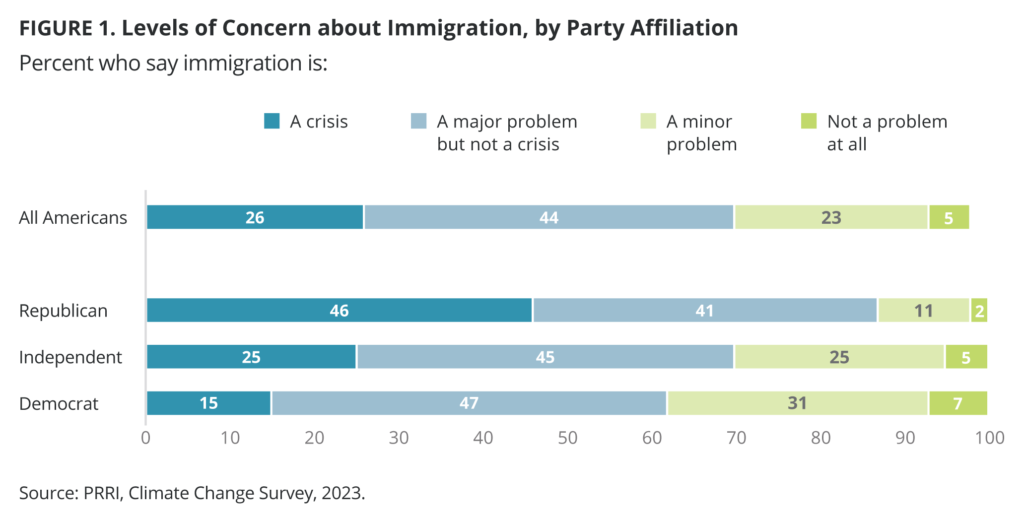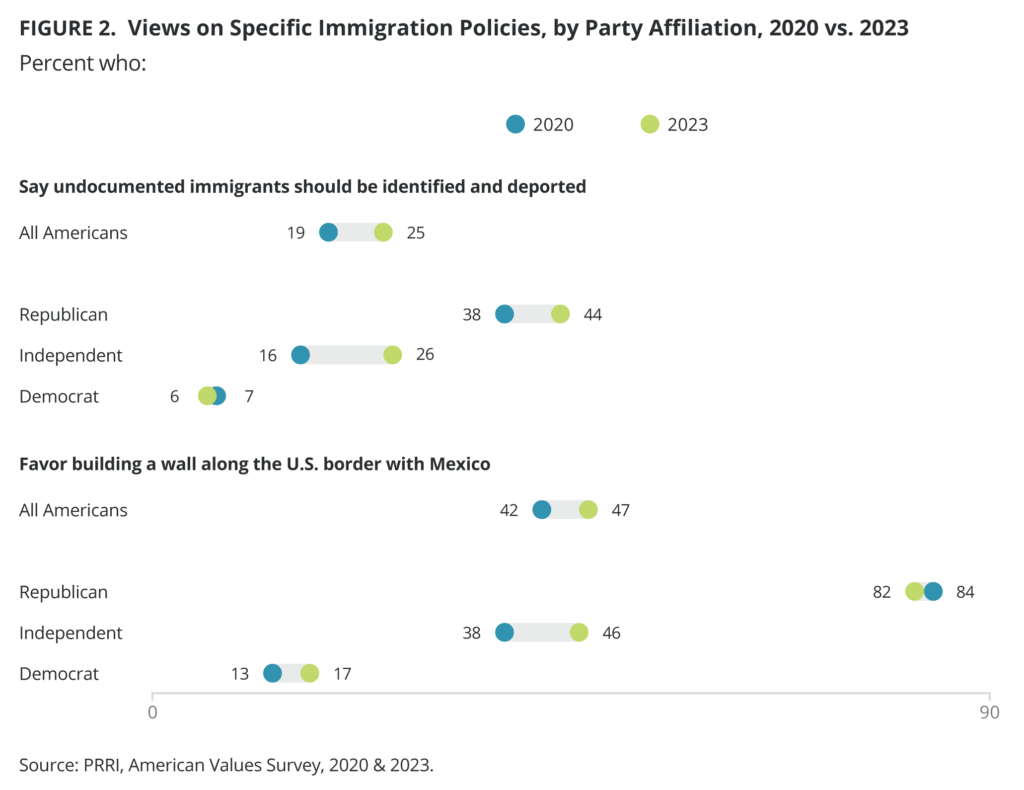Will McCorkle, Ph.D., is an assistant professor of teacher education at the College of Charleston, S.C., and a PRRI 2023-2024 Public Fellow. His research focuses on immigration and migration.
Just a few years ago, I remember fairly large events in Greenville, South Carolina, a city at the heart of the Bible Belt, where residents rallied against then-President Donald Trump’s Muslim ban, his move to end DACA, and — perhaps most notably — his child separation policy. In Charleston, South Carolina, over 300 people gathered to protest family detention or, as it become known, “putting children in cages.” It seemed, at the time, that there was great support among Democrats and progressives for more inclusive migration policies and strong opposition to Trump’s policies and rhetoric on immigration. However, it appears that this robust support for more inclusive immigration policies, both internally and at the border, has weakened among Democratic voters in recent years. This Spotlight examines changing views on immigration nationally and specifically among Democrats who may be hardening their views.
Data from PRRI’s 2023 Climate Change Survey shows that 26% of Americans say that immigration is a crisis while 44% say it is a major problem, but not a crisis. Though this number is higher among Republicans, with 46% saying it is a crisis and 41% saying it is a major problem, but not a crisis, the results are also higher than may have been expected among Democrats. Fifteen percent of Democrats say that immigration is a crisis and 47% say it is a major problem, but not a crisis.

Perhaps the more concerning statistic for marginalized immigrant communities, though, is how important an issue immigration is or is not for Democratic voters. Among Republican voters, 45% say they would only vote for a candidate who supported their views on immigration. However, among Democrats that number drops to just 29%. Only 7% of Republicans say that immigration is not an important issue when selecting a candidate while 10% of Democrats say the same.
These dynamics may explain why there was little outcry from Democrats in June when the Biden administration implemented an executive order that highly limited asylum at the border. It is just not one of their top issues. The fact that immigration has often been seen as a secondary issue by Democratic leadership, including under the Obama administration, has led to much outcry from immigrant activists and immigrant communities with many decrying the high number of deportations under the Obama administration.
Rising Support for Anti-Immigrant Policies
Results from some recent research have been even more concerning for immigrant communities. PRRI’s 2023 American Values Survey found that 25% of Americans say that undocumented immigrants should be identified and deported, up from 19% in 2020. Further, the same survey reveals that Americans have grown more likely to support building a wall along the U.S. border with Mexico, rising from 42% in 2020 to 47% in 2023, including Democrats (whose support rose from 13% in 2020 to 17% in 2023).

This trend toward more anti-immigrant attitudes among Democrats, Republicans, and Americans as a whole is likely due to our country’s often-hyperbolic negative media coverage on immigration. This coverage has been particularly anti-immigrant in relation to the situation at the Southern border and to the resettlement of asylum seekers in major U.S. cities. There has also been a tendency to highlight incidents of violent crime by immigrants and asylum seekers, even if they are rare incidents.
Yet, the Congressional Budget Office’s latest (nonpartisan) report shows how increased immigration has led to GDP growth and has helped to offset the labor force decline that is partly due to our aging U.S. population. Despite these positive benefits, public support for immigrants appears to be in decline. The fear among many immigrants and immigrant advocates is that this shift pulls the whole immigration discussion to the right where the once outrageous policies of the Trump administration are almost seen as the norm. Given what the data show, it is concerning to consider what the next steps on immigration might be in a potential second Trump term and how they would affect public opinion.